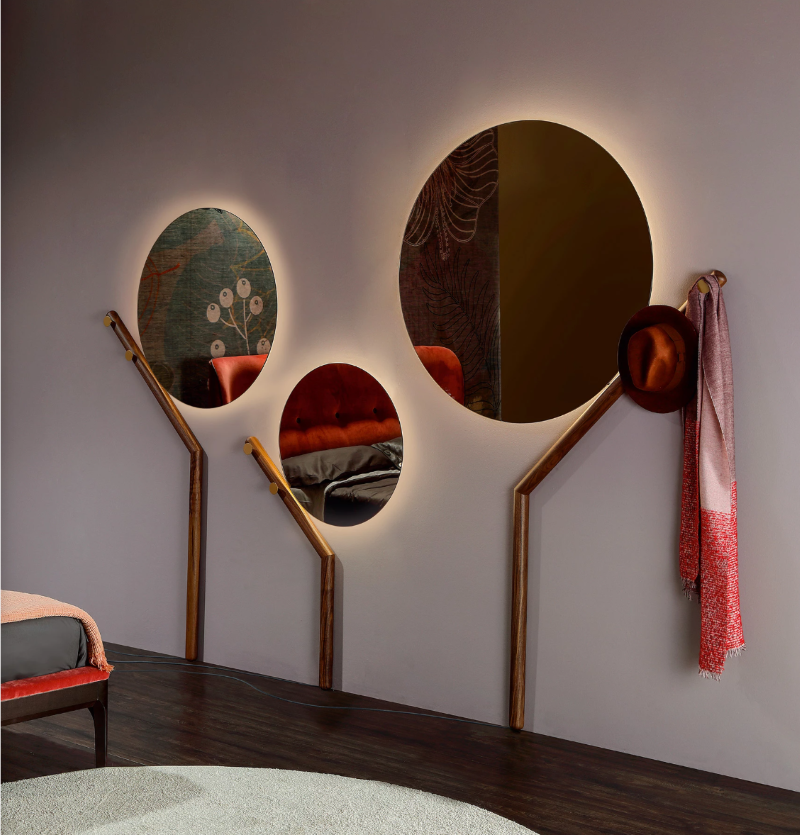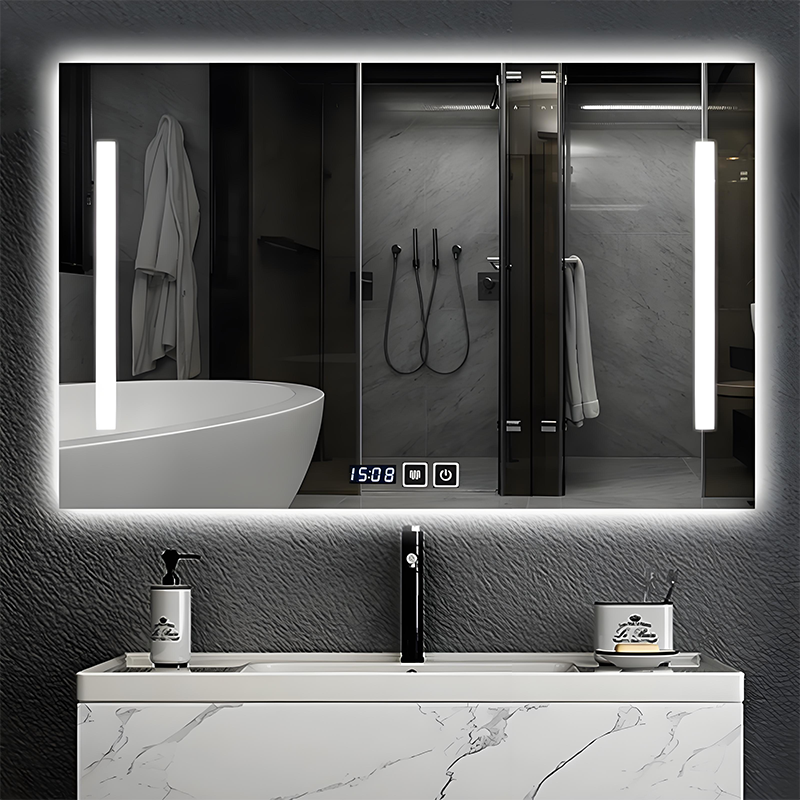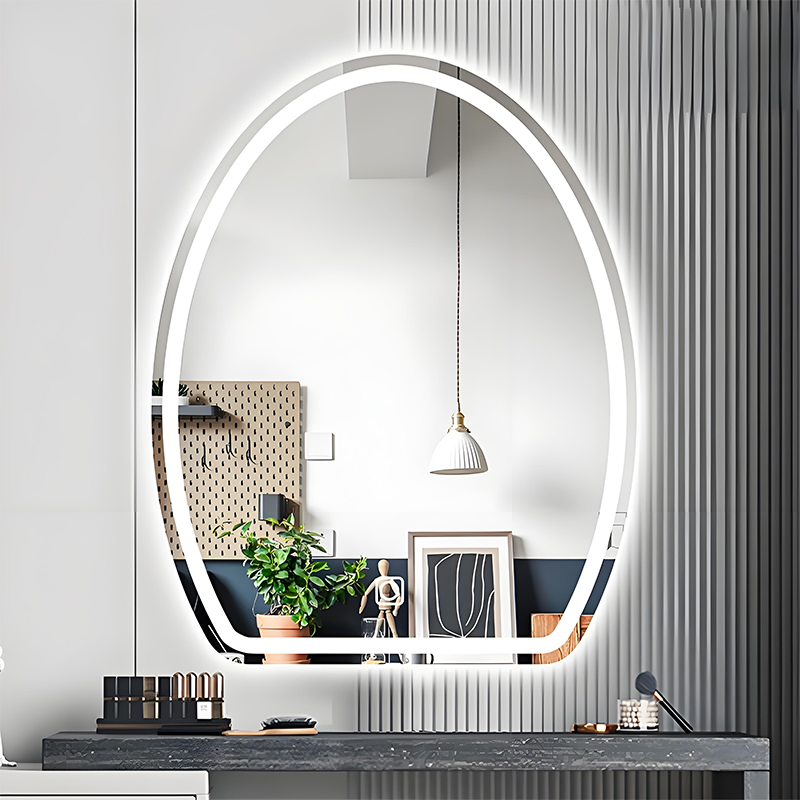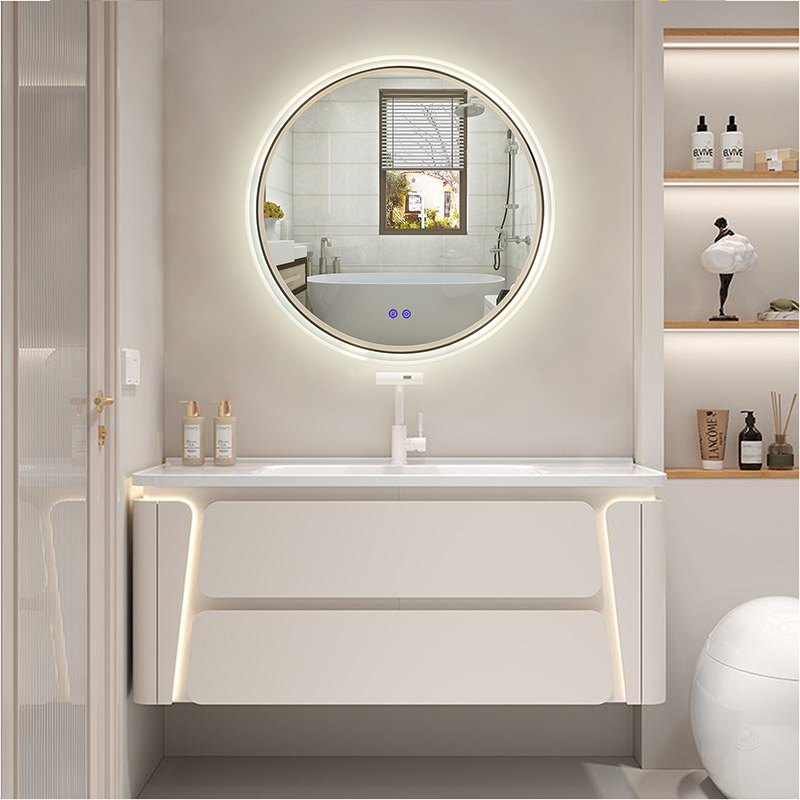Global Bathroom Mirror Trends: Innovation, Functionality, and Design Mastery (2025 Edition)
Technological Integration: The Rise of Smart Mirrors
Modern bathroom mirrors have transcended their traditional role, with smart mirrors leading the technological revolution. These advanced fixtures now incorporate features like:
Touchscreen interfaces (seen in 68% of new premium installations)
Voice control compatibility (integrating with Alexa/Google Home in 45% of 2025 models)
Built-in LED lighting systems with adjustable color temperatures (2700K-6500K range)
Anti-fog heating elements (standard in 82% of European luxury models)
Bluetooth connectivity for music streaming and phone integration
The German brand Duravit exemplifies this trend with their Smart Mirror 3.0 series, featuring integrated skin analysis technology that detects hydration levels and UV exposure. Meanwhile, American manufacturer Kohler has introduced mirrors with embedded Alexa speakers and ambient lighting controlled through mobile apps.
Design Philosophy: Minimalism Meets Functionality
International design trends reveal distinct regional preferences:
Scandinavian Simplicity
Nordic countries favor clean lines and organic materials. The FAMILY Mirror by Italian brand Tonin Casa combines a circular mirror with a minimalist oak coat rack, embodying the "less is more" philosophy while maximizing space efficiency in compact urban apartments.

Mediterranean Drama
Spanish designer MUT Studio's Nudo Mirror for Ex.t redefines functionality with its brass-framed design serving as both a mirror and towel holder. This multifunctional approach addresses space constraints in European apartments while maintaining aesthetic appeal.
Futuristic Aesthetics
Zaha Hadid Architects' Vitae Mirror for NOKEN pushes boundaries with its fluid, organic shape and integrated LED lighting. This design, resembling a liquid metal sculpture, has become iconic in high-end Dubai hotels and luxury residential projects.
Material Innovation: Beyond Traditional Glass
Manufacturers worldwide are experimenting with advanced materials:
Antimicrobial coatings (reducing bacterial growth by 99.8% per ISO 22196 standards)
Eco-friendly recycled glass (up to 80% post-consumer content)
Shatterproof acrylic alternatives (30% lighter than traditional glass)
Smart glass technology (electrochromic mirrors adjusting transparency)
Japanese brand TOTO leads in sustainable innovation with their Eco-Mirror Line, using 100% recycled materials and solar-powered LED backlighting. This aligns with Japan's national sustainability goals while addressing urban space limitations through compact designs.
Regional Market Preferences
North America
The US market prioritizes:
Smart connectivity (76% of new installations)
Customizable LED lighting
Anti-fog functionality (essential in humid climates)
Backlit mirrors (65% market penetration)
Mirror Source reports a 40% sales increase in their voice-controlled Smart Mirror Pro line since 2023, reflecting American consumers' embrace of home automation.
Europe
Key trends include:
Energy-efficient LED backlighting (A++ rated models)
Minimalist frameless designs
Antique finishes (brass/copper) in Mediterranean regions
Integrated storage solutions (mirror cabinets with 30% deeper shelves)
Germany's Burgbad leads in space-saving solutions with their Compact Mirror Cabinet, featuring depth-adjustable shelves and automatic LED activation.
Asia-Pacific
Unique requirements drive innovation:
Humidity-resistant coatings (critical in tropical climates)
Compact designs for small urban apartments
Aging-friendly features (magnification zones, grab bars)
Smart mirrors with health monitoring (blood pressure, BMI)
South Korea's Idea Shower addresses aging populations with their Wellness Mirror, incorporating fall detection sensors and emergency call buttons.
Installation Considerations for International Buyers
Electrical Requirements
EU: 220-240V, 50Hz with Schuko plugs
US: 110-120V, 60Hz with NEMA 5-15 plugs
Japan: 100V, 50/60Hz with Type A/B plugs
Mounting Standards
Drywall anchors for EU plasterboard walls
Toggle bolts for US stud spacing (16" centers)
Custom brackets for Asian concrete walls
Certification Compliance
CE marking (EU)
UL listing (US/Canada)
PSE certification (Japan)
KC mark (South Korea)
The Future of Bathroom Mirrors
Emerging technologies promise even greater integration:
Augmented Reality (AR) makeup trials (pilot programs in Seoul)
Biometric health monitoring (skin analysis, stress detection)
Holographic displays (conceptual designs from Milan Design Week)
Self-cleaning surfaces (nanotechnology coatings)
As boundaries between technology and design blur, the bathroom mirror evolves from functional object to personalized wellness hub. Manufacturers who balance aesthetic appeal with practical innovation will dominate this $12 billion global niche market.
This comprehensive exploration of international bathroom mirror trends provides actionable insights for designers, architects, and consumers seeking to harmonize functionality with cutting-edge style in their living spaces.




